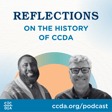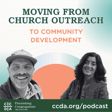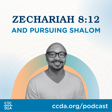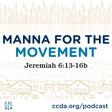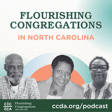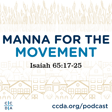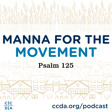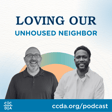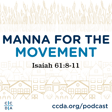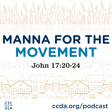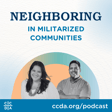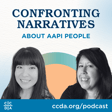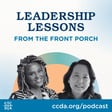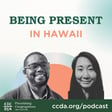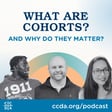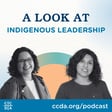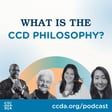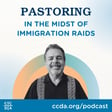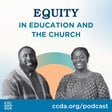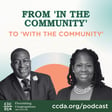
Building Bridges in Grand Rapids
Ethan Daly is joined by Ryan Waalkes and Christy Carlin Knetsch to share about how God is moving in their city of Grand Rapids. They reflect on the history of Grand Rapids, what it means to pursue peace and belonging instead of mere civility or niceness, and the power of reconciliation in action.
Learn more about the CCDA Conference and make plans to join us in Grand Rapids this November at ccda.org/conference. And discover ways to connect with like-minded people through CCDA’s local and affinity networks at ccda.org/connect.
With over two decades of experience as a social entrepreneur, Ethan Daly has dedicated his career to empowering community leaders and building ecosystems of opportunity. As co-founder of Sunshine Enterprises in Chicago, he helped grow an entrepreneur support organization that equips hundreds of emerging entrepreneurs each year with the tools to launch and scale businesses. He also served as U.S. Regional Director for Partners Worldwide, a global NGO focused on ending poverty through business. In 2022, Ethan joined Stand Together Foundation, where he currently serves as Senior Director of Bridging Divides. In this role, Ethan leads collaborative initiatives that bring together ideologically diverse leaders to solve community challenges, reduce toxic polarization, and promote a shared American identity. His work reflects a deep commitment to inclusive economic development, civic dialogue, and the transformative power of local leadership.
Ryan is the founder and executive director of Bridge Street Ministries, a Christ-centered, urban youth development organization in Grand Rapids, MI. He and his wife have five beautiful children and have been living out CCD principles for over 20 years. Ryan is a part of the CCDA national leadership cohort 8, serves on the Local Advisory Team for the 2025 CCDA national conference, and serves as one of the Grand Rapids local network connectors.
Inspiring others to know that in Christ, the past does not have to determine the future is the mission statement that has guided the career of Christy Carlin Knetsch (Kah-Net-Ch). Originally from the Pittsburgh area, where she was raised to cheer like a maniac for the Steelers, Christy started her career as a social worker and then spent 18 years as a youth pastor and community organizer at Madison Church, where one of her favorite things was driving a 12-passenger van filled with teenagers. After wrapping up six years of service as an Executive Director at New City Kids, she now serves in Philanthropy as a Program Officer at a local foundation. She is passionate about empowering leaders of all ages, promoting equity, and shaping the systems that influence the trajectory of a young person’s life. She lives in Grand Rapids with her husband Brad and their wild and wonderful kiddos, Isaiah, Solomon, and Simone. A graduate of Calvin University with a BA in Psychology/English/Gender Studies, she also holds a Masters Degree in Organizational Leadership from Cornerstone Seminary’s Urban Cohort Program.
Connect with CCDA on Instagram, Twitter, Facebook, and LinkedIn. Follow CCDA on YouTube.
